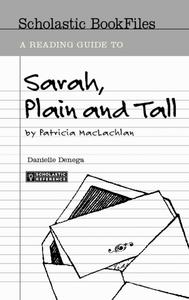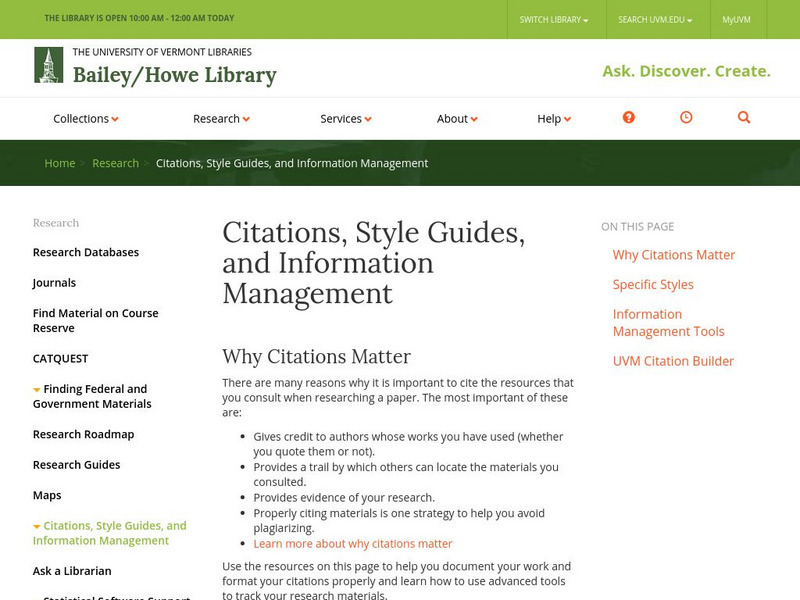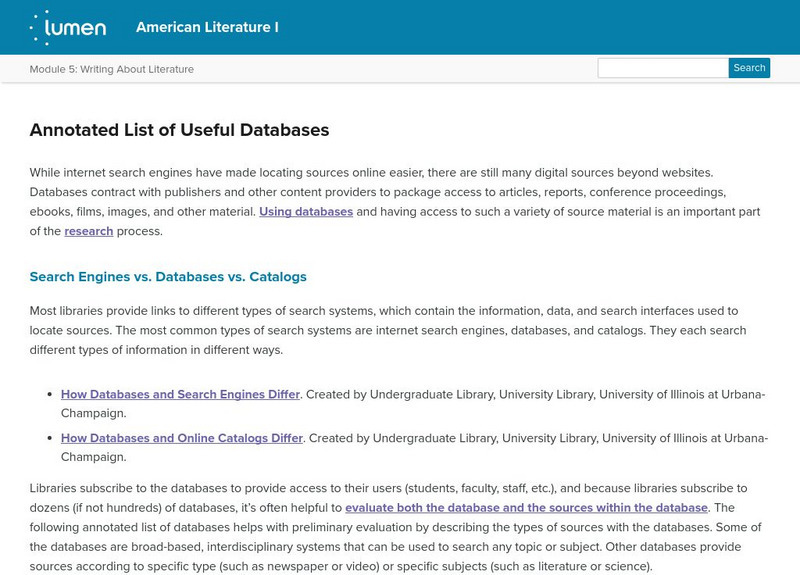International Reading Association
Children’s Choices 2014
Books for kids, chosen by kids! What could be better? This packet is made up of book lists, each with approximately 30 books included, organized by age group. Kids will enjoy the summer reading materials they choose from this...
PBS
Arthur’s World Neighborhood: Bibliography for Kids
Support young learners as they expand their cultural awareness with this list of children's literature on countries from around the globe. Including both fictional and non-fictional texts. This resource will help...
Association for Library Service to Children
Summer Reading List Grades 6-8
What better activity is there for summer than reading? Provide your pupils with 25 book ideas for their summer reading pursuits. A variety of different genres are represented on this list, and each book is paired with publication...
Scholastic
A Reading Guide to Sarah, Plain and Tall
Eliminate the hard work of creating an entire literature unit with this reading guide for the novel Sarah, Plain and Tall. From background information about the author and her motivation for writing the story to...
Library of Congress
Determining Point of View: Paul Revere and the Boston Massacre
If you're teaching point of view, this is the lesson for you! First, decipher the writer's point of view from a primary resource, then compare and contrast the primary source with a secondary source to explore the Paul Revere's...
Teach Engineering
Who Can Make the Best Coordinate System?
Working with a map that does not have a coordinate system on it, small, collaborative teams must come up with a coordinate system for their map. Groups then explain their coordinate structure to the class.
Cornell University
Insect IPM
Find out the characteristics that makes a bug an insect with a workbook designed to inform scholars about the crawly creatures that live around us. Scholars complete an ant-themed word search, answer questions using a solution key,...
IPDAE
Themes in Short Stories
"What is the theme of this story?" The very question can spark fear in the minds of readers and incinerate confidence. Here you will discover an exercise that shows how writers use the tools of setting, plot, conflict, and...
University College London
U. College London: Internet Resources on Former Yugoslav Republic of Macedonia
At this site there are many links to different subjects like elections, history, and culture on Macedonia.
Other
Bailey/howe Library: Citations, Style Guides, and Information Management
This resource from University of Vermont's Bailey/Howe Library focuses on citing sources including why it's important, the different citation styles (with links), tools to manage information, and a citation builder to create citations.
Other
Gov't Canada: First Nations Music in Canada [Pdf]
The First Nations of Canada are made up of many tribes with differing cultures and ways of life. One common bond is their music, and this resource offers a showcase of the development of their instruments and music as well as aboriginal...
Free Management Library
Map: General Guidelines for Conducting Interviews
Interesting site. Delineates the sequence, topics, and wording for interview questions. Explains the different types of interviews and has useful links to other resources. Although designed for an interviewer, this site should also be...
Lumen Learning
Lumen: Annotated List of Useful Databases
This is an annotated list of useful databases including the difference between search engines and databases and between databases and catalogs, broad-based databases, source-type databases, and subject-type databases.










![Gov't Canada: First Nations Music in Canada [Pdf] Handout Gov't Canada: First Nations Music in Canada [Pdf] Handout](http://content.lessonplanet.com/resources/thumbnails/410044/large/bwluav9tywdpy2symdiwmduymc0ynjg2ltlwng90ys5qcgc.jpg?1589985008)

